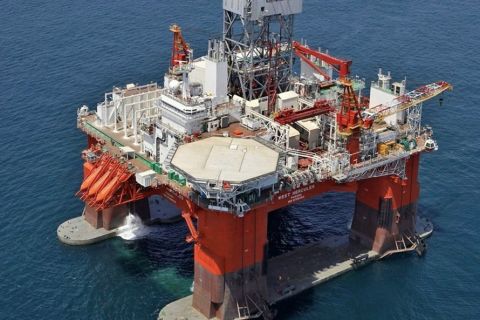Saudi Arabia hopes OPEC and its allies will be able to relax production curbs next year and create a permanent framework to stabilize oil markets after the current supply cut deal ends this year, its oil minister said Feb. 24.
OPEC is reducing output by about 1.2 million barrels per day (bbl/d) as part of a deal with Russia and other non-OPEC producers.
The pact, aimed at propping oil prices, began in January 2017 and will run until the end of 2018.
Saudi Arabian oil minister Khalid al-Falih said OPEC and its allies were committed to bringing balance and stability to the market and that he hoped it would be possible to ease output curbs next year.
"A study is taking place and once we know exactly what balancing the market will entail we will announce what is the next step. The next step may be easing of the production constraints," he told reporters in New Delhi.
"My estimation is that it will happen sometime in 2019. But we don't know when and we don't know how."
Falih said OPEC was determined to translate the success of the deal to curb supply into a permanent framework with other major producers.
"What we want is an evergreen framework that brings producers from OPEC and non-OPEC [countries] together in a market monitoring fashion that allows us to take quick decisions," he said.
Steering Wheel
"I think everybody has learned, producers as well as consumers, that a market without a steering wheel is very destructive, very damaging to the interests of all," he said.
Falih said compliance with the output cuts in January was "exceptional."
Oil prices have doubled from their lows in 2015-2016 after the cuts.
Falih said the market had absorbed rising U.S. shale oil production, as output from countries such as Venezuela and Mexico had declined.
U.S. oil inventories fell last week.
Saudi Arabia, the world's biggest oil exporter, in March cut production and exported less than 7 million bbl/d due to seasonally soft demand.
Falih said that in January-March, Saudi Arabia's oil production was well below the production cap, with exports averaging below 7 million bbl/d.
India Focus
State oil company Saudi Aramco has signed a preliminary deal to invest in India's planned 1.2 million bbl/d West Coast refinery. Falih said Aramco was also looking at buying stakes in existing major refiners and expansion projects in India.
He did not specify the size of stake Aramco will take in the west coast refinery, but added: "the more the better."
India aims to expand its refining capacity by 77% to about 8.8 million bbl/d by 2030.
Falih said Saudi Arabia would also sign oil supply deals as part of the agreement to buy stakes in Indian refineries, a strategy the kingdom has adopted to expand its market share in Asia and fend off rivals.
Last year, Saudi Arabia pledged billions of dollars of investments in projects in Indonesia and Malaysia to secure long-term oil supply deals.
Recommended Reading
Sinopec Brings West Sichuan Gas Field Onstream
2024-03-14 - The 100 Bcm sour gas onshore field, West Sichuan Gas Field, is expected to produce 2 Bcm per year.
Tech Trends: Halliburton’s Carbon Capturing Cement Solution
2024-02-20 - Halliburton’s new CorrosaLock cement solution provides chemical resistance to CO2 and minimizes the impact of cyclic loading on the cement barrier.
E&P Highlights: Feb. 16, 2024
2024-02-19 - From the mobile offshore production unit arriving at the Nong Yao Field offshore Thailand to approval for the Castorone vessel to resume operations, below is a compilation of the latest headlines in the E&P space.
E&P Highlights: April 29, 2024
2024-04-29 - Here’s a roundup of the latest E&P headlines, including a new contract award and drilling technology.
Orange Basin Serves Up More Light Oil
2024-03-15 - Galp’s Mopane-2X exploration well offshore Namibia found a significant column of hydrocarbons, and the operator is assessing commerciality of the discovery.





